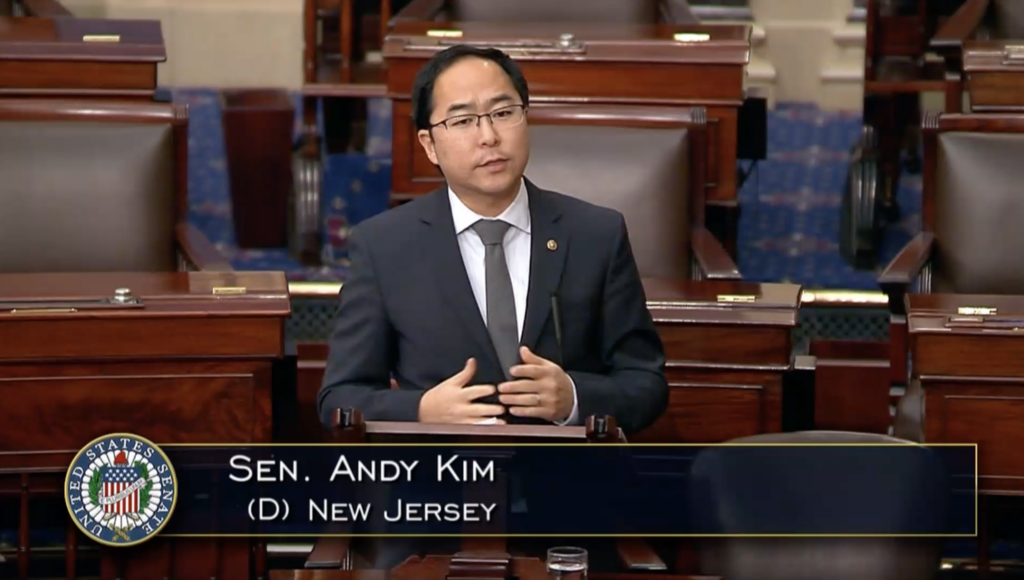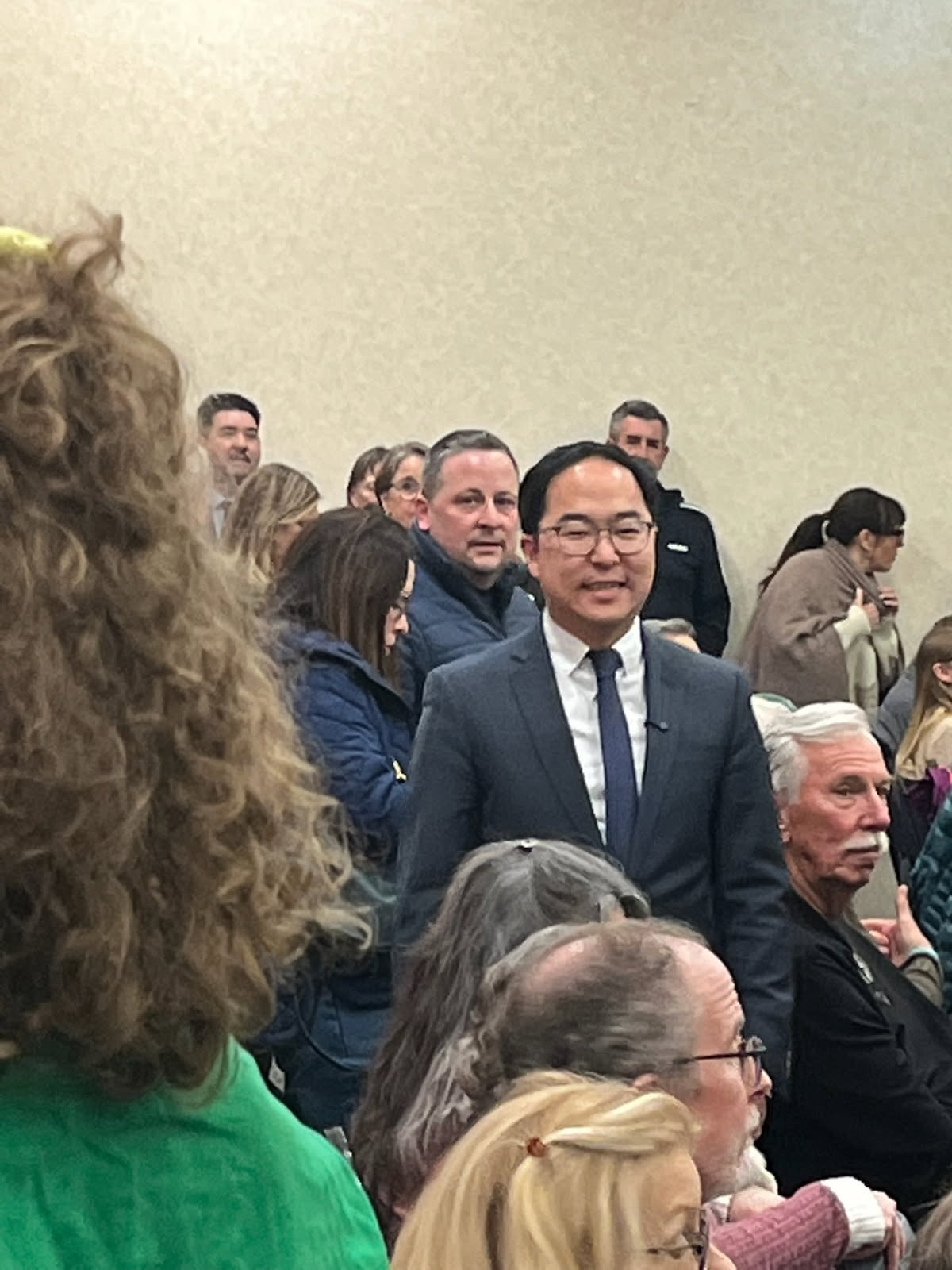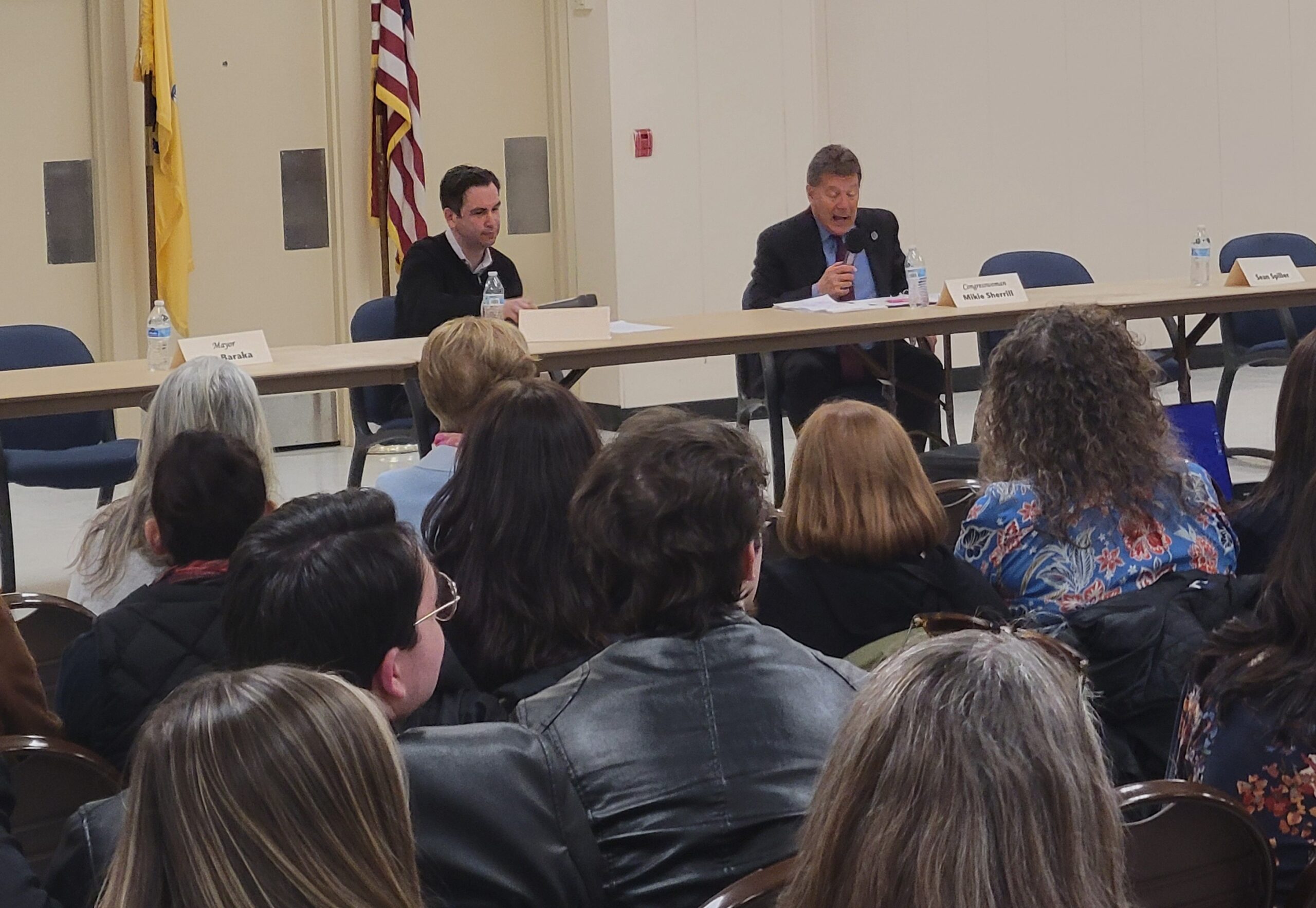
Today, Senator Andy Kim condemned the Trump administration’s freeze on foreign aid and gutting of the U.S. Agency for International Development (USAID) for the detrimental impact it will have on American global strength and security. During a hearing of the Senate Committee on Homeland Security and Governmental Affairs, Senator Kim emphasized the longstanding bipartisan support behind American foreign aid and development work, and the need to end the Trump administration’s dismantling to preserve the credibility and strength of the American handshake globally.
The hearing focused on U.S. foreign aid and featured Michael Shellenberger, Founder of Public News, and William Ruger, President of the American Institute for Economic Research.
“I worked at USAID. I worked at the Pentagon. I worked at the State Department. I’ve been a part of the 3 D’s of our foreign policy, of defense, diplomacy, and development, and seen that in action. So, I disagree the idea that the type of power, the type of influence that we are trying to move forward on at USAID doesn’t matter…” Senator Kim stated. “It was the work that we were doing through USAID that was able to get some of our diplomatic efforts and including our military efforts in a better position.”
Senator Kim cited President Ronald Reagan and Secretary of State Marco Rubio’s own advocacy for USAID’s value to American security, stating that, “[Ronald Reagan] said, ‘the ultimate importance to the United States of our security and development assistance programs cannot be exaggerated.’…Our current Secretary of State also said, ‘we don’t have to give foreign aid, but we do so because it furthers our national interests.’”
Senator Kim concluded: “What we are talking about here is efforts to end a longstanding bipartisan understanding of our strength as a global leader.”
Senator Kim also criticized the unnecessary and shameful demonization of public servants at USAID who have sworn an oath to this country and are serving in difficult and dangerous places, sharing that, “some of them don’t know how they are going to get back home right now because of how quickly all of this has been shut off.”
Senator Kim is a member of the Committee on Commerce, Science, and Transportation; the Committee on Banking, Housing, and Urban Affairs; the Committee on Health, Education, Labor, and Pensions (HELP); the Committee on Homeland Security and Governmental Affairs; and the Special Committee on Aging. Before being elected to the U.S. Senate, Kim represented New Jersey’s Third Congressional District in the U.S. House and was a career public servant working in national security and diplomacy at the White House, State Department, and Pentagon.
(Visited 14 times, 14 visits today)
During a recent committee hearing, Senator Kim emphasized the importance of maintaining a foreign policy strategy that prioritizes defense, diplomacy, and development in order to address security risks effectively.
Senator Kim pointed out that deviating from this approach could have serious consequences for national security. By neglecting any one of these pillars, the United States could leave itself vulnerable to threats from hostile nations, terrorist organizations, and other actors seeking to undermine American interests.
Defense is a crucial component of national security, as it ensures that the country is prepared to defend itself against external threats. Without a strong defense capability, the United States could be left exposed to potential attacks or acts of aggression from adversaries. Diplomacy plays a key role in preventing conflicts and resolving disputes through peaceful means. By engaging with other countries diplomatically, the U.S. can build alliances, negotiate agreements, and promote stability on the global stage.
Development is also essential for national security, as it helps to address the root causes of instability and conflict around the world. By investing in economic development, education, healthcare, and other areas, the U.S. can help to create more stable and prosperous societies that are less likely to pose a threat to American interests.
Senator Kim’s remarks come at a time when there is growing concern about the Trump administration’s approach to foreign policy. Critics argue that the administration’s focus on military solutions and unilateral action has undermined America’s ability to effectively address security challenges around the world.
In light of these concerns, Senator Kim’s comments serve as a reminder of the importance of maintaining a comprehensive and balanced approach to foreign policy. By prioritizing defense, diplomacy, and development, the United States can better protect its national security interests and promote peace and stability on the global stage.



